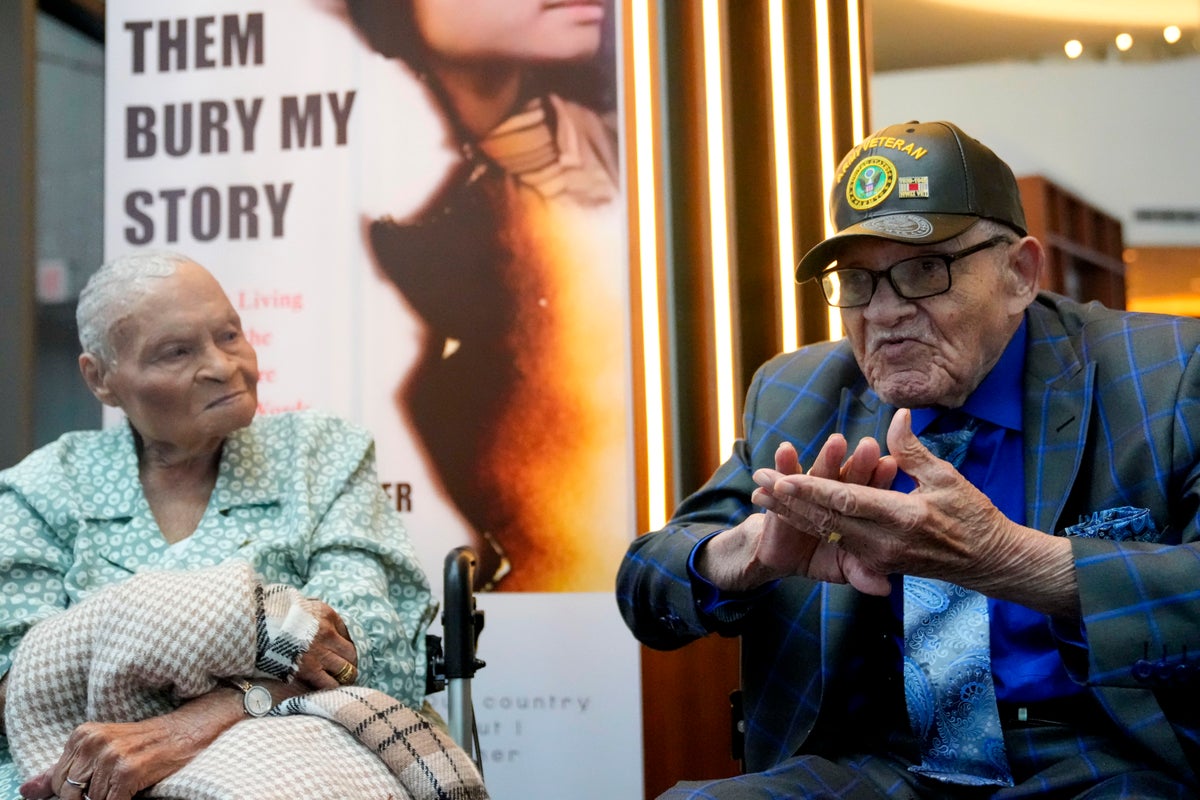
A judge in Oklahoma has thrown out a lawsuit seeking reparations brought by the last three known survivors of the 1921 Tulsa Race Massacre.
The move dashes efforts to obtain some measure of legal justice more than 100 years after the deadly racist rampage.
On Friday, Judge Caroline Wall dismissed with prejudice the lawsuit trying to force the city and others to make recompense for the destruction of the once-thriving Black district known as Greenwood.
The case was brought in 2020 by the three survivors — Lessie Benningfield Randle, 108, Viola Fletcher, 109, and Hughes Van Ellis, 102. They hoped to see, as their attorney put it, “justice in their lifetime”.
The plaintiffs brought the lawsuit under Oklahoma’s public nuisance law, stating that they wanted to seek relief from the day in which a white mob killed as many as 300 Black people and left thousands homeless, destroying a 35-block area, looting and burning it to the ground. Survivors were housed in a hastily constructed internment camp.
Greenwood, then one of the most prosperous Black business districts in the nation, never recovered. The lawsuit contended that Tulsa’s long history of racial division and tension stemmed from the massacre.
No compensation has ever been paid to the victims for everything they lost either by the city of insurance companies — the subsequent racial and economic disparities can still be seen today, the plaintiffs argued.
In this 1921 image provided by the Library of Congress, smoke billows over Tulsa, Oklahoma during the racially driven massacre
The lawsuit sought a detailed accounting of the property and wealth lost or stolen in the massacre, the construction of a hospital in north Tulsa, and the creation of a victims’ compensation fund, among other things.
A Chamber of Commerce attorney previously argued that while the Tulsa massacre was horrible, the nuisance it caused was not ongoing.
The City of Tulsa requested the lawsuit be dismissed with prejudice against refiling. Part of their legal team’s argument was that “simply being connected to a historical event does not provide a person with unlimited rights to seek compensation from any project in any way related to that historical event.”
“If that were the case, every person connected to any historical event could make similar unjust enrichment claims against every museum or point of remembrance,” they claimed.
Tulsa County District Court Judge Wall appears to have been convinced and wrote in a brief order that she was tossing the case based on arguments from the city, regional chamber of commerce, and other state and local government agencies. She had previously allowed the case to proceed having ruled against a 2022 dismissal motion by the defendants.
While local judicial elections in Oklahoma are technically nonpartisan, Ms Wall has described herself as a “Constitutional Conservative” in past campaign questionnaires.
Ms Fletcher, the oldest living survivor and plaintiff, is set to release a memoir next month about the life she lived in the shadow of the massacre. She was seven years old when Greenwood burned.
In 2019, Oklahoma’s attorney general used the public nuisance law to force opioid drug maker Johnson & Johnson to pay the state $465m in damages. The Oklahoma Supreme Court overturned that decision two years later.
With reporting by The Associated Press







